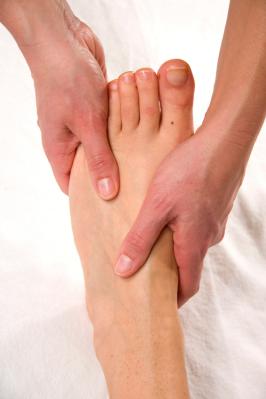Podiatry
![]()
We put a lot of pressure on our feet (literally!) every day and though they sometimes hurt and ache, they often get ignored. Foot ailments are among the most common health problems and can be indicators of larger, more serious systemic diseases. Diseases such as diabetes, circulatory disorders, anemia and kidney problems can show up initially as a foot problem. Also, arthritis and gout can attack foot joints first.
Foot health is essential for overall health and it is important to seek specialized care such as that from a doctor of podiatric medicine (podiatrist) for any problems that may arise with your feet. Proper foot care and correct shoe-fitting are great ways to prevent foot problems. Click on the links below for some great tips from the American Podiatric Medical Association on how to keep your feet healthy.
So where does compounding come into play? There are many medications that can be compounded specifically for problems with the feet. For example, anti-inflammatories such as Ibuprofen and Piroxicam can be compounded into a cream that can be applied directly to feet afflicted by arthritis, tendinitis, bunions, and plantar fasciitis. This is a great advantage in that initial metabolism by the liver is avoided and on-the-spot pain relief can be provided. Another condition that compounded medications can help is onychomycosis (Nail Fungus). When manufactured tablets cannot be taken orally due to allergies or liver issues, anti-fungal medications can be compounded with a strong driving agent to deliver the medication into the nail where it’s needed. Other conditions where compounding can help include hyperhidrosis (excessive sweating) of the feet and foot odor, non-surgical nail removal, wart removal, and chronic paronychia (a type of nail infection).
Please call our knowledgeable pharmacists for any questions you may have on how compounding can help the feet!
Useful Links:
www.ampa.org

